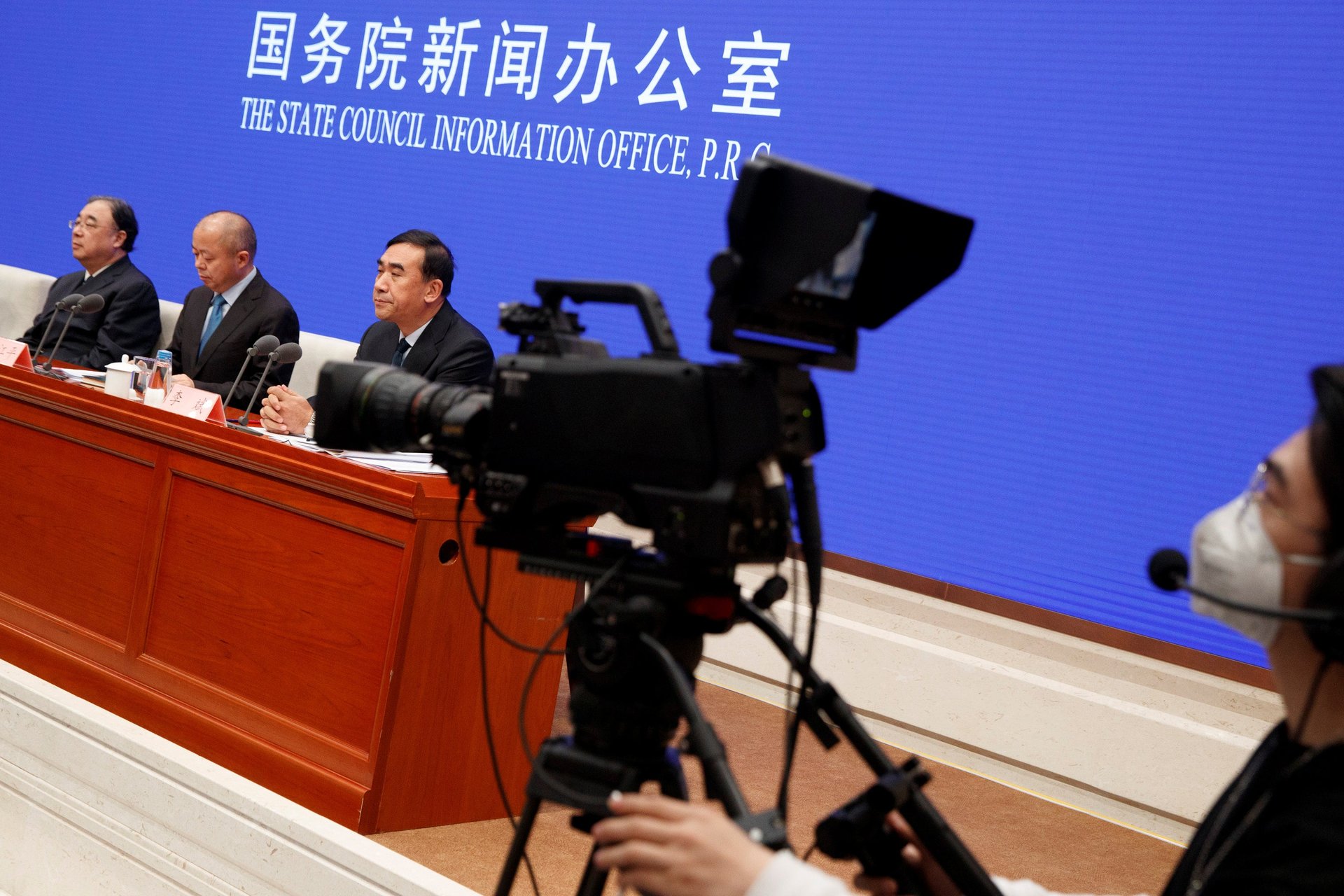China is dispatching journalists to tell the coronavirus story it wants its people to hear
After a short window of about two weeks in which Chinese journalists were able to publish hard-hitting stories exposing the mishandling of the novel coronavirus by officials, the government now resolutely wants to quell those efforts.


After a short window of about two weeks in which Chinese journalists were able to publish hard-hitting stories exposing the mishandling of the novel coronavirus by officials, the government now resolutely wants to quell those efforts.
China’s central propaganda department said on Tuesday (Feb. 4) that it would dispatch more than 300 journalists to report on the disease, which has led to more than 28,000 infections and 563 deaths in the country. Zhang Xiaoguo, a top official of the department, said in a news program that it would treat propaganda regarding the control and prevention measures of the virus as its top priority.
The decision to send the journalists came on the heels of a meeting chaired by Chinese leader Xi Jinping held earlier this week, amid mounting public anger at the government’s handling of the crisis. During the meeting, Xi and some senior government officials emphasized the importance of enhancing the regime’s control over online media. The goals include “telling the moving stories of how [people] on the front line are preventing and fighting the virus, telling the story of how China is combating the virus, and showcasing the unity of the Chinese people in the face of the virus,” said the officials, according to the Xinhua news agency (link in Chinese).
The decree means that the narrow window for critical reporting is fast slamming shut again. Despite Beijing’s severe censorship, publications like financial outlet Caixin have been able to publish some of the best coverage on the coronavirus since late January, when China first reported confirmed infections outside Wuhan, the epicenter of the disease. These include a 40,000 word feature (link in Chinese) reported by 37 journalists that paints a vivid picture of how the crisis unfolded due to the Wuhan government’s delays in revealing information. In addition to Caixin, outlets like Beijing Youth Daily, Beijing News, and GQ China have also produced reports (link in Chinese) chronicling the suffering of Wuhan residents, as well as interviews with a doctor whistleblower who was arrested for sharing information about the virus in a WeChat group before an official announcement was made.
China’s top cybersecurity regulator also warned websites (link in Chinese) such as news portal Netease’s financial channel that they had violated a law (link in Chinese) that bars online news outlets from publishing original interviews, after it conducted its own interviews with people relating to the disease. Such sites are only allowed to re-publish the interviews of others, or analysis pieces.
Writing in the New York Times, Maria Repnikova, an assistant professor at Georgia State University who studies China’s media, said the short breach of information controls by the journalists was possible in part due to laxer control over the media by local officials, who are usually preoccupied with supervising outlets specific to their own locales. In addition, even the central government may have had to relax its iron grip in order to receive timely and factual information during a severe crisis.
The decree to re-establish control over the media is extending to the rest of the Chinese internet. With heavy censorship still in place, people have used creative ways to channel that anger, for example by making references to the Chernobyl disaster or referring to Xi as “Trump” to avoid censorship. The cybersecurity regulator yesterday, however, removed an app that circulated memes and jokes because it “published harmful short videos” and “spread panic” about the virus.